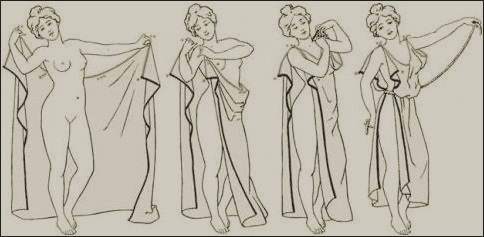The Athenians called the Spartan women fainomérides (‘those that show the thighs’) as a reproach of their freedom of dress. This was because the Spartans were still using the old Dorian peplos, which was open in the waist side. It was part of women’s fashion, more comfortable and lighter than the female clothing in the rest of Greece: where fashions flourished of extravagant hairstyles, makeup, jewellery or perfumes. It was a fashion for healthy Spartan women.
But the rest of Hellas, as far as women are concerned, was already infected with Eastern customs: which kept them permanently locked up at home, where their bodies weakened and their sick minds developed. The Athenian poet Euripides (480-406 BCE) was shocked at the fact that the ‘daughters of the Spartans… leave home’ and ‘mingle with men showing their thighs’.
(Passages from one of Evropa Soberana’s essays in The Fair Race’s Darkest Hour.)

One reply on “Spartan women”
Some of the German women of the Third Reich seemed to have revived the outlook of the Spartan women during that brief glorious period.